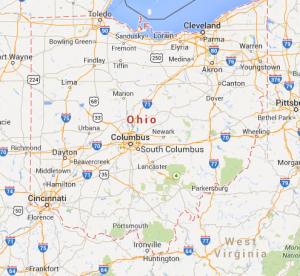Replenish the Earth
By Terry Brown of Pigeon, MI, USA

God blessed them, and God said to them, “Be fruitful and multiply, and replenish the earth and subdue it; and have dominion over the fish of the sea and over the birds of the air and over every living thing that moves upon the earth.” —Genesis 1:28 NRSV, adapted
God has challenged us to be good stewards and care for the diversity of creation. Human history, however, points to our dereliction of duty. We are in one of the greatest periods of species extinction in the history of our planet. Recently scientists began calling this the Anthropocene or “Age of the Humans.” Considered the result of human activity, extinctions have occurred at over 1000 times the normal background extinction rate since 1900.
God created us to be cocreators. Sadly, one can rightly consider humanity’s last 100 years a humbling and frightening legacy credited to the greed and arrogance of humanity.
I have learned directly from scientists about the effects humans have on our environment. On one occasion I was aboard the research vessel R/V Channel Cat during the Lake St. Clair Trawl Survey with biologists conducting research and tagging lake sturgeon.
Sturgeon is the peak species of the Great Lakes. They are the largest, the longest-lived, most unique-looking of our fish. Sometimes called “dinosaur fish,” they can weigh up to 200 pounds and grow to seven feet long. Sturgeon can live 100 years. Many do not reproduce until they are over 20 years old.
Sturgeon numbers have significantly declined in North America. Only a remnant population remains in most Great Lakes today. The American Fisheries Society label lake sturgeon as threatened in North America.
Before to European settlement, sturgeon were plentiful throughout the Great Lakes. Native American tribes depended on the species as a vital food source. From the early 1900s to the 1970s sturgeon continued to decline in numbers due to commercial exploitation.
Damming of tributaries, deforestation, agricultural pollution, and dredging for shipping channels wreaked destruction on spawning areas. Sturgeon fell victim to a double-edged sword of increasing demand and a declining ability to reproduce.
The fish serve as an indicator of ecosystem health and biodiversity because of their unique history. Due to collaborative efforts, lake sturgeon in the Great Lakes are beginning to rebound. However, their numbers still fall short compared to former years.
Our behavior matters. What we do has an effect on this planet and each inhabitant. We can continue to deplete the diverse life God called us to manage responsibly, or we can take an active role in protecting and restoring our environment. We must replenish the Earth.
Prayer for Peace
Creator God, help us understand the impact of our choices. Open our eyes to wise use of the resources you have entrusted to us. Bless us as we act to live in peace with your creation.
Spiritual Practice from Today’s Writer
Genesis 1:21 tells us that God brought forth living creatures of every kind. Look around you to see if you can find one of God’s creatures. Whether it creeps or flies, notice its features. Try to understand why God said it is good and blessed. Now imagine what the world would be like without life that swims or flies or walks or crawls. Imagine, in other words, the effect of losing this blessing that is “in your hands.”
Peace Covenant
Today I will begin to replenish the Earth by planting a seed.



